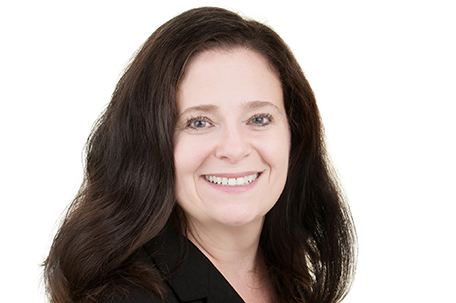
ABOVE PHOTO: Beth Grossman
Beth Grossman knows that on paper she’s got an uphill battle to the District Attorney’s office. But if Philadelphians get to know her, she believes that they’ll like what they see.
By Denise Clay
Here’s a political fact about the City of Philadelphia that you probably already knew: Democrats hold a 7 to 1 voter registration edge over their Republican opponents.
But while you may know that and not think that it’s all that big a deal, Republicans running for office in the city know it as well and few have managed to combat it successfully.
Beth Grossman hopes to change that. After more than 21 years in the District Attorney’s office, she hopes to beat the 7 to 1 voter registration edge held by the city’s Democratic Party to become the first Republican in the office since former Pennsylvania Chief Justice Ron Castille held the office.
But in a city where Republican=Trump, that’s going to require hard work.
Grossman says she’s up to the challenge.
“I know that I’m going to need to get out and meet as many people as possible,” she said. “I think that once they get to know me, people will give me a chance.”
Grossman worked in the District Attorney’s office under both Lynne Abraham and R. Seth Williams. She served in Trial, Juvenile, Law, Investigations and Narcotics divisions of the office. She was also assistant chief of the Municipal Court Unit and Chief of the Public Nuisance Task Force. She was also head of the DA’s Civil Forfeiture Unit.
She was also Chief of Staff for Philadelphia’s Department of Licenses and Inspections.
Grossman is a graduate of Penn State University and Temple University’s Beasley School of Law.
As part of our series profiling the candidates running for District Attorney, the SUN talked to Grossman about her vision for the office, the challenges she sees, and why things like the Democratic Party’s 7 to 1 edge are actually bad for the city.
SUN: Thank you so much for your time Ms. Grossman. I guess that my first question for you is, what made you decide to run for District Attorney?
BG: I was in the District Attorney’s office for 21-and-a-half years. I was hired by Lynne Abraham in 1993 and I left the office in April of 2015. I’ve always wanted to be a prosecutor. I’ve always wanted to seek justice, to champion the rights of victims and to work for the public safety of Philadelphia, which is a city that I love. I just love being a public servant.
SUN: So that means that you worked for both Abraham and Seth Williams. What was different about those experiences? What was the same? What will you change if you win the office?
BG: As far as ethics go, Lynne Abraham ran a very tight ship in regard to ethics and integrity. And now we have the current DA, who is under indictment on public corruption charges, which is very devastating to me as a prosecutor, as a taxpayer and as a citizen of Philadelphia.
In terms of what I’d do differently when Abraham was the DA, the “War on Drugs” was going very strong, and it led to a lot of incarceration. When we look back, we can see that it didn’t work too well. I’d like to take a different approach and see what we could do better in terms of addiction, and the sale of drugs. We’ve had a problem with crack and heroin, but right now we also have a real problem with heroin and opioids. We have to see what works now.
SUN: One of the things that came out of the War on Drugs was a large incarceration rate. While we now have some different drugs in the midst of all this, the incarceration rates are still too high for many, almost to the point that some believe that it might be time to get rid of some facets of the prosecutorial process. What do you think about that?
BG: : One, we can’t get rid of the prosecutorial process because we’re still a city where we have violent crime. People are being victimized and are being traumatized. So these people have to be dealt with and prosecuted under the law. We already have an outstanding [public] Defenders organization, so we don’t need another one.
SUN: How would you separate those who are addicted from those who are trafficking?
BG: That’s where prosecutorial discretion and police investigation come in. We have to work with healthcare providers. Now it’s a heavy lift, but police in some of our districts are diverting people to treatment and to mental health care.
But how we separate them legally is based on the evidence. We have dealers, but we also have addicts that are dealing to feed their habit. We have to look at each case individually.
SUN: This brings up the subject of undercharging vs. overcharging and how it dovetails into the subject of cash bail. Have you looked into those issues and if so, what would you do?
BG: I don’t object at all to the elimination of cash bail for non-violent offenses like drug possession or minor theft. A lot of people are on State Road for being arrested and yet not being convicted of anything. We have a MacArthur Grant designed to reduce the prison population by 33 percent, and one of the ways we can do that is by moving to a system of risk assessment instead of cash bail. New Jersey has made this move, and it should be interesting to see how it works there.
But when it comes to charging, every case is based on how the evidence was evaluated. It’s not the District Attorney who decides how a crime is charged, it’s the evidence.
SUN: Police/community relations have been a big part of the discussion during this District Attorney campaign. Stop and frisk, police brutality, all of these things are connected to that. What is your position on these things?
BG: When it comes to stop and frisk, they don’t find anything more often than not. The District Attorney can only charge someone if something is found. But there has to be context. You can’t just harass people. We have to keep track of the officers who do a lot of this because a big part of community policing is getting the community to trust you. If you go around harassing people, no one will trust you, people won’t come forward, they won’t cooperate and things won’t get better. If someone is stopped and frisked, it has to be reasonable.
As for police shootings, it’s the obligation of the District Attorney’s office to prosecute any case in which anyone, including the police, breaks the law. It’s the oath that we take. But I also believe that the DA’s first obligation is to meet with the family of someone who was shot by a police officer and their representatives as soon as possible so that they’re not getting all of their information from the media. I’m not saying that the media is bad here, but the family should be getting their information directly from the DA’s office.
SUN: We’ve been having a nationwide discussion over the death penalty. Some think that we should get rid of it because it’s inexact and you could execute someone innocent. Others think we should do away with it because it’s expensive. Under what conditions would you ask for the death penalty?
BG: The last person we executed in Pennsylvania was Gary Heidnik in 1999, and that was only because he waived his right to appeal. The last involuntary execution in Pennsylvania was in 1962. The death penalty requires a lot of money in terms of a trial and appeals, so we have to ask ourselves if this is the best use of our resources? Would it be better if we used the money we would spend on a death penalty case better used for diversion programs or witness protection?
Every case is different. It has to be a very rare or extreme circumstance. Now if it’s a really heinous crime, like the murder of a child or a first responder or terrorism? Yes. But we have to make sure that we have the right person. The work that the Innocence Project does is good, but it’s hard on families who find out after all these years that the person that they thought committed the crime against their loved one is innocent, and the process has to start again. The heavy lifting has to be done on the front end.
SUN: Civil forfeiture has also come up a lot during this campaign. Can you explain to me how it works and why it seems to have become an issue?
BG: Civil forfeiture is used when people get arrested for drug trafficking and their property is seized. If the house and the money were used part and parcel for drug trafficking, it’s an effective tool to deal with how destructive drug dealing can be to neighborhoods. Houses are only seized when it’s discovered that they’ve been used part and parcel for drug trafficking. The homeowner can appeal.
While people get upset about houses being seized, the story that gets lost is the one about all of the people who live on that street. Drug houses reduce public safety. You don’t want your child to walk past a drug house. Most of these houses are abandoned or are owned by out of state landlords or relatives that should know better what’s going on in their homes.
SUN: Now you’re running in this race as a Republican. When most folks in Philadelphia think “Republican,” they don’t think of someone like you. How do you handle the perception that comes with your party?
BG: I think that I need to get out to as many people as possible. None of us like to be labeled or stereotyped. We want to be seen as who we are.
I was a Democrat until 2013 and I left because I started to see a whole lot of public officials in Philadelphia being investigated for corruption. I took my oath as a prosecutor and a public servant very seriously. It was an oath to do what was right and to not use my position to enrich myself financially.
It was a tsunami public official corruption.
The Democratic Party has been in power for 60 years, and when you have one party in such control, you get corruption and complacency. I realize that the only thing that ended Republican corruption was the Home Rule charter, so I’m not trying to say that one party is any better than the other. But we need balance. We need a prosecutor whose not owned by the party in power.
SUN: Thank you for your time, Ms. Grossman. I really appreciate it.
BG: Thank you!

















Leave a Comment